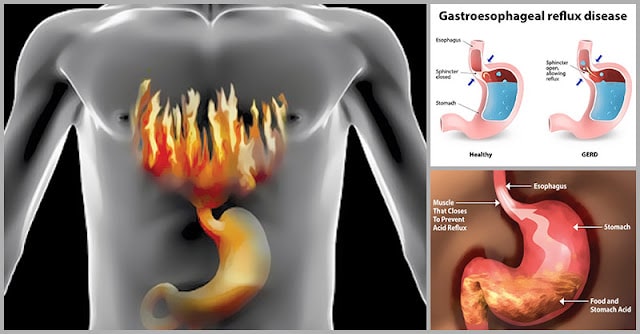If you’ve just had spicy food, eaten too much, been pregnant, or just an adult human being, then maybe you have had heartburn at some point. This condition is nothing to be alarmed about, yet there some instances wherein you shouldn’t ignore it.
Heartburn Can Mimic A Heart Attack
Heartburn symptoms may be similar to those of a heart attack or angina—a crushing type of chest pain that is caused by decreased blood flow to the heart.
There are some rules of thumb for differentiating between heartburn and a heart attack. For example, when you are lying, heartburn typically gets worse and can leave a sour taste in your mouth. But, there are exceptions and when you are in doubt you should always see a doctor. And always go to the emergency room If you are experiencing chest tightness, turn pale, break into a sweat, pass out, or become extremely weak.
Heartburn Pain Could Be Masking A Stomach Ulcer
A sore found in the stomach lining is called a stomach ulcer. This can be painful which is often felt in the upper abdomen and up into the chest and at times can be similar to the pain of heartburn. If not properly treated, ulcers can lead to bleeding, blockage between the stomach and small intestine, and perforation in the wall of the stomach. While some stomach ulcers heal on their own, some require antibiotics and even surgery.
Your Heartburn Could Be Due To A Hiatal Hernia
Normally, the diaphragm has a small opening through which your esophagus passes on its way to the stomach. When your stomach pushes up through this hole in your diaphragm a hiatal hernia occurs and this can cause food and acid to back up into your esophagus, thus causing heartburn. See a doctor if you are having persistent or severe heartburn signs or symptoms.
Your Heartburn Could Actually Be Gallstones
Gallstones are pieces of hardened digestive fluid that form in your gallbladder, which is a small organ to the right of your abdomen. If you are cramping in the middle or upper-right side of your abdomen, then you may have gallstone blocking your bile duct. The pain often occurs just after eating—similar to heartburn. Contact your physician if you are having consistent stomach pain after eating that doesn’t approve after taking an antacid.
Heartburn Could Be A Cancer Symptom
In a rare case, heartburn can be a sign of stomach or esophageal cancer. If you have been having persistent heartburn or experiences difficulty in swallowing food for three weeks or more, you should see a doctor. Other signs may include unexplained weight loss; nausea or vomiting; feeling food sticking in your throat when you swallow; feeling unusually full; gassiness; and pain or discomfort in the top of the stomach.
Severe Heartburn Can Lead To Esophagitis
Esophagitis is inflammation of the esophagus and is often caused by stomach acids backing up into the esophagus. A person suffering from this condition experiences painful, difficulty swallowing and chest pain. If left untreated, esophagitis can damage the esophagus’s lining and can lead to complications such as scarring and difficulty swallowing. If your heartburn symptoms lasted for more than a few days, make eating difficult, are accompanied by flu-like symptoms or by shortness of breath or chest pain that occurs shortly after eating, and don’t improve with over-the-counter antacids get checked by a doctor.
Severe Heartburn Could Be A Symptom Of GERD
Oftentimes, people with GERD have heartburn, however, it is a symptom of a larger problem. GERD happens when stomach acid or stomach content flows back into your esophagus. The reflux irritates the lining of the esophagus, causing GERD. Maybe it’s time for you to see a doctor if you are experiencing heartburn or acid reflux at least twice a week, or if it is interfering with your daily life.
GERD Can Lead To Barrett’s Esophagus
GERD, if left untreated, can evolve into Barrett’s esophagus. In Barrett’s esophagus, the tissue lining of the esophagus changes to resemble the lining of the intestine. With this condition, your risk of developing esophageal cancer increases.









